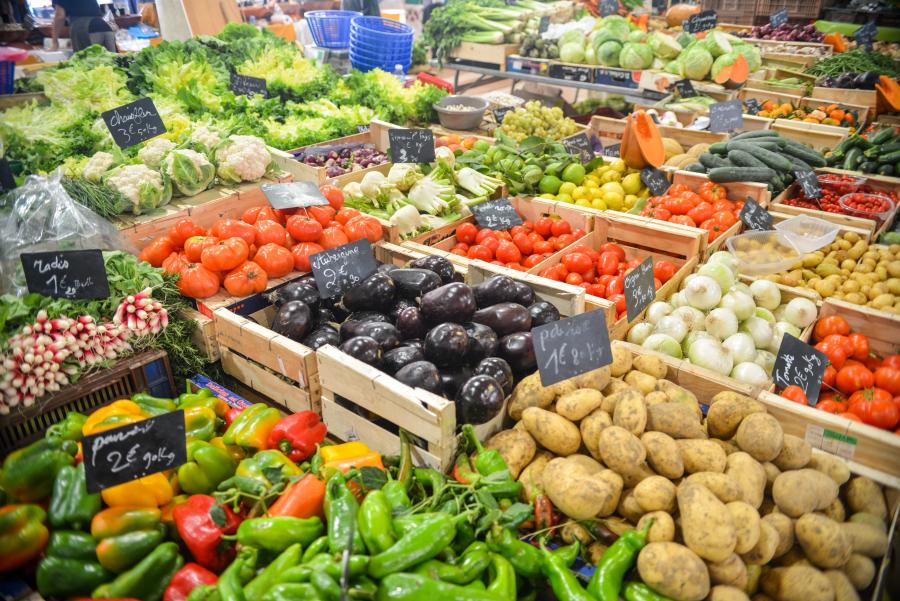
So, let's talk about food revolution
Humanity faces big issues related to chronical diseases, food safety and the environment. To solve the problems, to help ourselves and to save the next generations, we need to change the way we act and the way we eat by taking action on food revolution.
What has changed in food consuming? Why do people need a food revolution? Apparently, you do not need to be a hero with super power if you want to save this planet. The truth about changing the world is way simpler than that.
"Food Revolution"? Why do we need it?
Nowadays, more people are chronically ill than at any previous time in history and these kinds of diseases are imposing an increasingly heavy burden on the world’s population. You may not know that about 775 million people on this planet including adults, children, and adolescents are suffering from obesity and over 2 billion people are overweight (Renew Bariatrics, 2017). However, this issue is not only about health, but also about climate change and food crisis. All of them are ringing the alarm bells to make us aware of the need for food revolution.
Perhaps you often hear “in my days…” stories from grandparents or old relatives about the war they fought, the lives they lived and the food they ate. Until some decades ago, people used to eat whole foods. The milkman delivered dairy products from a not so far away dairy. Meat and poultry could be purchased from a local butcher, and they probably had known the animals personally. All kinds of vegetables and food had no growth hormones, antibiotics and genetically modified organisms; animals used to be raised on grass and outdoors, in a happy way. At the time of our grandparents, people ate the healthiest kinds of food, and organic farming was essentially the norm.
However, time flies and the way we consume food is different now. Things began to change after the 1950s when the idea of shortcuts and faster foods became the norm. Processed food gradually came into our daily life. It is considered cheaper than real food and is the champion of timesaving. In a fast-paced society, people want to save time more than ever before. After a long working day, they do not want to spend so much time in the kitchen anymore, and all kinds of packaged food become ‘saviors’. Hiding behind these faster options, however, is a huge threat that people should know about.
The food we consume today is not the same as what our grandparents used to eat. According to the U.S. Department of Agriculture, nearly 80% percent of all processed food in the United States contain genetically modified organisms (GMOs). The updated numbers show that genetic engineering has been done on 90% of all cotton, 90% of all corn, and 93% of all soybeans planted in America, and these are the main ingredients for many of the basic products people need in life. Picture it! All these data illustrate the situation in the States, but there are hundreds of nations in which billions of people consume these chemical foods full of artificial colors, flavors and sweeteners, high in trans-fat and refined carbohydrates, low in nutrients and fiber. Unhealthy products not only lead people to serious illness and chronical diseases, but also create new threats for the environment, and cause food crises.
The path from the farms to the forks is never ever tough like that.
We are living in the 21st century, but 108 million people in 2016 were reported to be facing a crisis of food insecurity or worse; the number in 2015 was 80 million (Global Report on Food Crises, 2017). Beside armed conflicts that cause widespread displacement, climate change largely manifests itself in dreadful conditions. In fact, it is clear that the use of harmful chemical ingredients can have terrible effects for the environment. Nobody can deny that some natural disasters nowadays are caused by the impact of human beings; El Nino, hurricanes, floods, and so forth are damaging agricultural livelihoods, triggering food insecurity.
From the small decisions of what we eat in normal daily life, we can directly trace a line to serious global issues. Therefore, our food choices today do not only show how we take responsibility for ourselves, but also indicate responsibility for our mother earth. The questions are: Do we want to give a trashy and damaged planet to our children? Do we want our next generation to suffer from the mistakes we make today?
If not now, when?
If you are shouting out that the answer to the above questions is no, then this is the right time to act responsibly. Many people want to change the world yet think about it as a difficult task they cannot handle in one day and one night. The truth is way simpler than that. Food revolution is one of the easiest actions people can take to start changing the world from here on.
The notion of food revolution is not recent. Chef Jamie Oliver has been one of the pioneers for promoting a switch to healthy, organic food since 2010, when he produced his famous “Food Revolution” cooking show. The number of people who want to change their eating habit, for example to become vegetarian or vegan, tends to increase but many of them do not know where to start or still make wrong choices because they do not understand the root of the problems. Fundamentally, the aims of food revolution are to help people figure out the importance of fresh healthy products in our daily life; educating both adults and children to have knowledge about food and nutrition and about the dual role they play as part of a healthy lifestyle.

Everyone has equal right to eat healthy food.
By supporting te organic specialty shops and local farmers' markets, or buying organic products from supermarkets, any one of us can increase the consumption of organic food in order to boost the sector’s success. The power of consumers is much stronger than we thought. People have far more to offer than just the act of consumption (J. Alexander, 2017). According to the team’s Food Citizenship report, rather than seeing ourselves as consumers who ‘demand’, ‘choose’ or ‘receive’ and are driven by price and convenience alone, we can instead act as citizens who ‘participate’, ‘create’ and ‘shape’.
Regarding technology, food safety technology has greatly changed how we identify, react to, and communicate issues. The Internet and social media platforms have allowed an instant exchange of information, which causes food companies to react accordingly (J. Heaps, 2014). Many people are using these effective tools to spread ideas to food suppliers, yet raise awareness to other consumers who may lack knowledge about what they are eating every day. That could be the reason why on some digital platforms such as Facebook or Instagram the number of pages relating to eating clean, becoming vegan, preventing food waste and securing food sustainability is constantly increasing. It seems like people are taking care of their health and their diet more than ever before, and with the support from social media the speed of these healthy trends accelerates.
However, the revolution game for food cannot be completed if governments, big food companies, farmers, providers, and others who produce our food, stand outside the circle of change. Food safety should be an employee mindset.
Modern business emphasizes the connection between finance, business and society; that a company, especially a food company, can make the balance of their profits and the health of million consumers all over the world.
Converting a farm to organics takes time and effort from suppliers, but it is never too late to start a new good thing. It is the same as investing in the future of the next generation. We should not be selfish, live in a shell, and leave the heavy burden for our kids. We just have one life to live and one earth to share with our future children. Act responsibly, then teach them how to respect and protect this world. They will be thankful for every single effort we try to make today and carry on the mission to keep the planet alive.
Will you be the next?
I know the food revolution topic is not new anymore, but it is always a hot issue that we need to work more on. The good news is that part of humanity is changing its eating habits to become healthier and happier, and they do care about the environment. The “not so good” news is that this number is increasing only slowly.

Change the eating habit, will you be the next?
There are always some excuses that keep you from changing, but this change is good for individuals and for communities. If you are looking for a date to start this revolution, today is the day. You should not think changing the world is something enormous, because it can start right with the person you see in the mirror every day, from our small but responsible choices in daily life. Choosing organic food, eating less meat and more vegetables, stopping food waste, and so on; there is an entire path you and me can walk together. However, a journey of a thousand miles always begins with a single first step, does it not?
References:
Food and Agriculture Organization, (2017). Global Report on Food Crises.
J. Alexander, (2017). A food revolution: ditching the consumer mindset for the health of people and planet.
J. Heaps, (2014). The Food Industry: Then and Now.
Renew Bariatrics, (2017). Report: Obesity Rates by the Country.
U.S. Department of Agriculture, Economic Research Service, Genetically engineered varieties of corn, upland cotton, and soybeans, by State and for the United States, 2000-15.